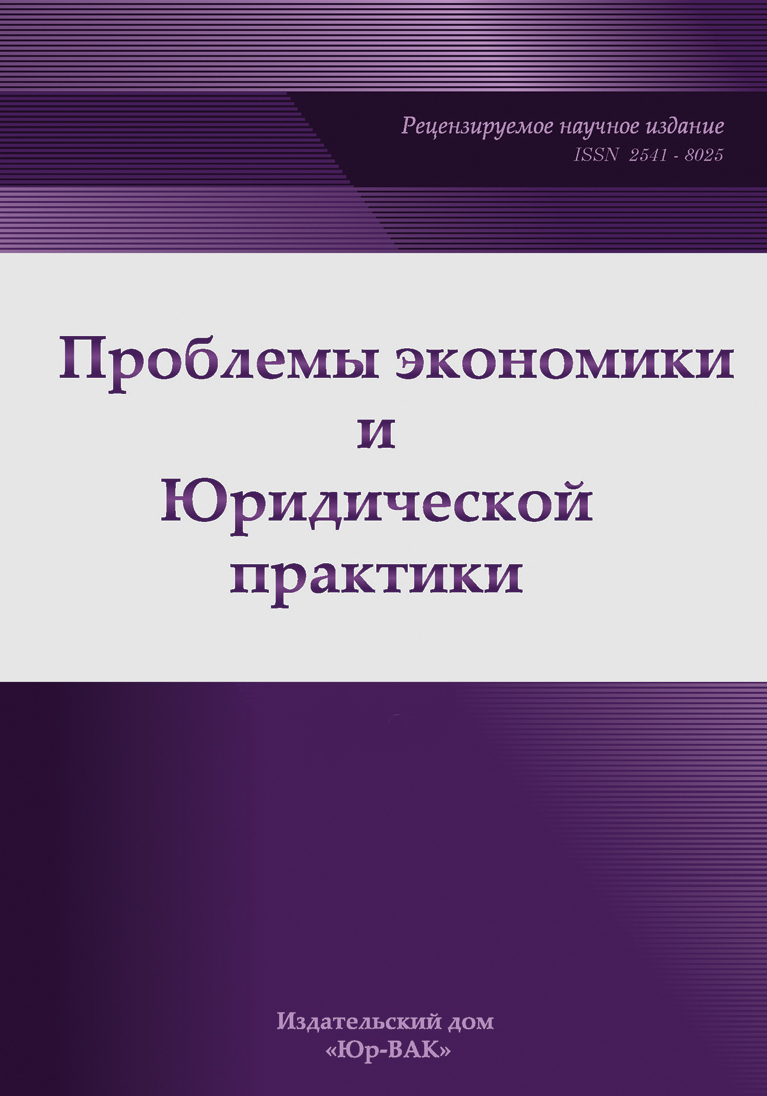Parafiscal Payment: in the Russian Legal Doctrine
- Authors: Toria R.A.1, Raikova K.D.2
-
Affiliations:
- Presidential Academy of the RANEPA
- Federal Tax Service (Inspectorate of the Federal Tax Service) No. 6 of Moscow
- Issue: Vol 19, No 1 (2023)
- Pages: 93-97
- Section: Public Law (State and Legal Sciences)
- URL: https://journals.eco-vector.com/2541-8025/article/view/568197
- ID: 568197
Cite item
Abstract
This article analyzes the content of such a legal phenomenon as a para-fiscal payment. Payments that are not formally built into the system of public sources of budget replenishment and, nevertheless charged to ensure public tasks, are gradually becoming more widespread. The goal of this article is to assess the legal nature of para-fiscal payments. The approaches to the definition of para-fiscal payments in the Russian financial and legal doctrine are analyzed. Examples of para-fiscal payments within the framework of Russian legislation and law enforcement practice are considered. Based on doctrinal approaches and practice of law enforcement on the issue of legal regulation of para-fiscal payments, a conclusion was made about the sufficiency of guarantees of the legal position of para-fiscal payers. The study leads to the conclusion that parafiscality is a payment collected from private entities on the basis of public law regulations and aimed at fulfilling the socio-economic tasks of public administration. However, in the case of Russian legal reality, socially significant needs can often be rather not an explanation for parafiscality, but a way to justify an arbitrary mandatory payment. The establishment of «parallel» taxes in itself does not create negative consequences for the state and society. Nevertheless, within the framework of the Russian legal order, the establishment of parafiscalities can be regarded as a lawful and justified step only in the implementation of the general constitutional guarantees underlying administrative regulation.
Full Text
About the authors
Rita A. Toria
Presidential Academy of the RANEPA
Author for correspondence.
Email: rtoria@yandex.ru
Dr. Sci. (Law), Professor of the Department of State and Legal Disciplines
Russian Federation, MoscowKristina D. Raikova
Federal Tax Service (Inspectorate of the Federal Tax Service) No. 6 of Moscow
Email: raykova-k@mail.ru
intern
Russian Federation, MoscowReferences
- The Constitution of the Russian Federation (adopted by popular vote on 12.12.1993 // Legal reference system «ConsultantPlus».
- Tax Code of the Russian Federation (Part One) dated July 31, 1998 No. 146-FZ // Legal reference system «ConsultantPlus».
- Civil Code of the Russian Federation (Part Four) dated December 18, 2006 No. 230-FZ // Legal reference system «ConsultantPlus».
- Federal Law No. 317-FZ dated December 1, 2007 «On the State Atomic Energy Corporation Rosatom» // Legal reference system «ConsultantPlus»
- Federal Law of June 24, 1998 No. 89-FZ «On Production and Consumption Wastes» // Legal reference system «ConsultantPlus».
- Federal Law No. 177-FZ of December 23, 2003 «On insurance of deposits of individuals in banks» // Legal reference system «ConsultantPlus».
- Resolution of the Constitutional Court of the Russian Federation of February 28, 2006 No. 2-P// Legal reference system «ConsultantPlus».
- Resolution of the Constitutional Court of the Russian Federation of July 19, 2019 No. 30-P // Legal reference system «ConsultantPlus».
- Decision of the Supreme Court of the Russian Federation of December 26, 2017 No. 305-KG17-12383 // Legal reference system «ConsultantPlus».
- Dolgova A.U. Parafiscal fees in Russia. Voronezh, 2012
- Romashchenko L.V. Legal nature of parafiscal payments: dis. ... cand. legal sciences. M., 2013.
- Kozyrin A.N. Tax law of foreign countries: questions of theory and practice. M., 1993.
- Karaseva (Sentsova) M.V. Actual problems of the system of public payments // Tax law in the decisions of the Constitutional Court of the Russian Federation, 2012. M., 2014.
Supplementary files









